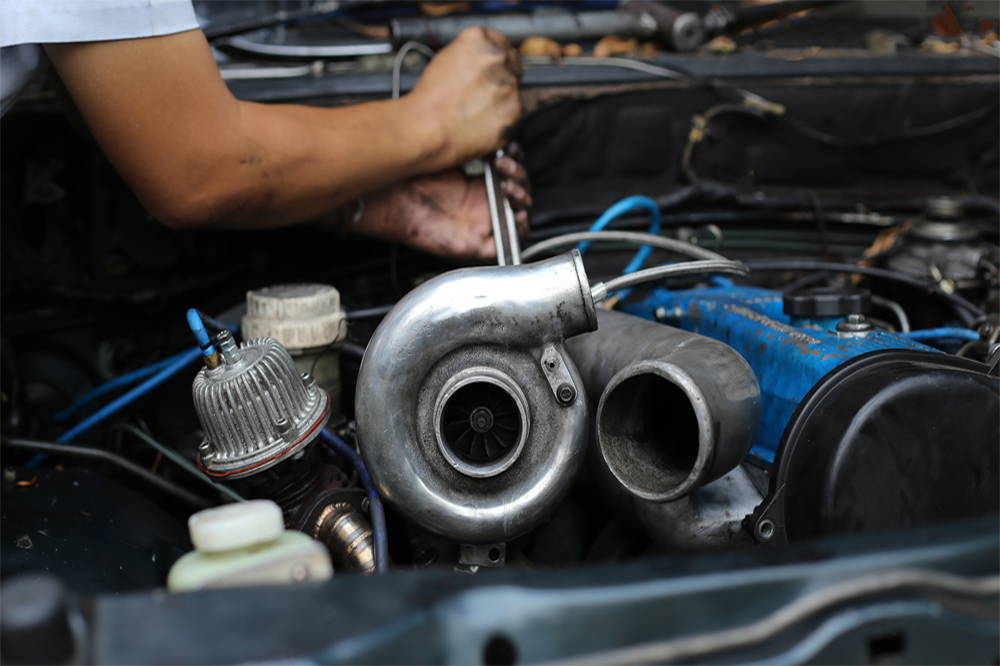
Despite turbos being manufactured to last as long as the car, a turbo can become blown and stop working at the same level of efficiency.
A turbo or turbocharger is a device used to improve engine power. To achieve the same force as larger cars, manufacturers use turbos to improve performance. Therefore, those with smaller engines can experience environmental and financial advantages with regards to spending less on fuel and causing less pollution.
To produce power your engine combines fuel and air. By increasing the amount of air involved, this enhances the power of the engine while minimising costs. By installing a turbo, your engine receives more air because the exhaust will spin the air pump. The air pump drives a greater amount of air into the cylinders of your engine which elevates horsepower.
There are many signs your turbo might be blown such as grey smoke coming from the exhaust, slower acceleration, less power and being unable to maintain high speeds. In a nutshell, if the performance of your car has decreased this could indicate you have a blown turbo.
The Car’s Age
If you have been driving your car for decades, your turbo is likely to blow eventually. Even though they are designed to last as long as the car, they can wear out and stop working as effectively. However, there are other factors to consider such as how you drive your car and the quality of the turbo you installed.
Cracked Seals
When seals become damaged between the compressor and the engine, this causes oil to leak into the exhaust system which will force the turbo to work harder to increase air pressure. The harder the engine needs to work, the greater the chances of a blown turbo.
Engine Oil
The right oil is essential for your turbo to work properly. Poor quality oil or the wrong grade of oil could lead to a buildup of contaminants and carbon deposits in the engine which can cause a lot of damage and blow your turbo.